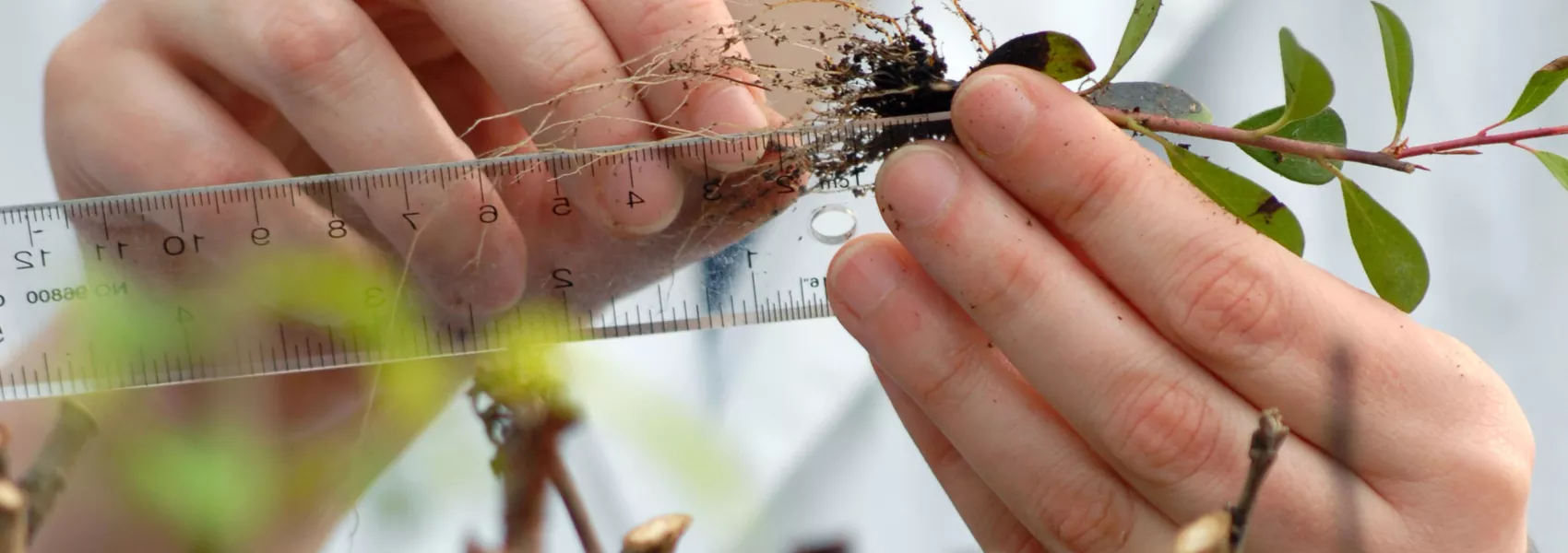
Environmental and Sustainability Studies
Learn to be an effective agent of environmental, sustainability and social innovation as you promote the mitigation of, and/or adaptation to, environmental and sustainability challenges.
A degree in Environmental and Sustainability Studies leads to a rewarding career in sectors such as government, Indigenous government and agencies, the non-profit sector, law (with additional training), international development, environmental consulting, environmental health and more.
120 credits, 4 Years,
Part-time available
Program Details
Study the natural environment, societal challenges and sustainable solutions to environmental and sustainability challenges, surrounded by the spectacular natural environment of UNBC.
Explore the social science and humanities perspective on environmental and sustainability issues. Study the concepts of environmental citizenship, societal relationships with ecology, sustainability initiatives such as carbon management and energy, global perspectives and more.
Experiential learning opportunities are available in the program’s third and fourth years.
Career Paths
- Law
- Education
- Environmental consultant
- International development
- Public interest groups and NGO's
- Government researcher
Why at UNBC
- Understand the foundations of being an environmental citizen
- Discover sustainable approaches through interdisciplinary analysis of policy, law, environmental assessment, and carbon and energy management
- Develop fundamental skills in GIS, cartography, communication and public engagement techniques
- Choose from specialties in Global Environmental Studies, Communities and Environmental Citizenship, Natural Resources Management and Indigenous Perspectives
- Access experiential learning opportunities in the heart of a diverse, natural landscape
'En Cha Huná
UNBC’s motto, from the Dakelh (Carrier) Elders, reminds us that all people have a voice and a viewpoint. Interpreted as “respecting all forms of life,” 'En Cha Huná encapsulates the spirit of academic freedom, respect for others, and willingness to recognize different perspectives.
Subscribe for updates
Receive personalized emails about your programs of interest, scholarships, application dates and more!
Admission Requirements
High School Admission Requirements (Applicable for B.C. and Yukon)
Overall average of 65% minimum in the following:
- English Studies 12 or English First Peoples 12
- Approved Academic Grade 12 Course
- Approved Academic Grade 12 Course
- Approved Academic Grade 12 Course
- Additional Grade 12 Course (Elective or Academic)
Domestic Admission Requirements
View the full list of approved academic grade 12 courses.
More high school admission requirements (including out-of-province, International Baccalaureate and Advanced Placement)
Transfer Requirements
- Have attempted at least 15 credit hours of post-secondary transferable coursework from a recognized institution.
- Be in good academic standing at the transfer institution.
- Have a 2.0 GPA from the most recent 30 credits prior to transfer.
- For the purposes of verifying any outstanding first-year prerequisites, high school transcripts may be requested.
International admission requirements
International Student Requirements
- Meet UNBC's English language requirements
- Meet the international admission requirements by country or meet the admission with a General Certificate of Education (or equivalent)
- Complete the required high school course equivalencies outlined in the Domestic tab prior.
Transfer Requirements
- Have attempted at least 15 credit hours of post-secondary transferrable coursework from a recognized institution
- Be in good academic standing at the transfer institution
- Have a 2.0 GPA from the most recent 30 credits prior to transfer
- For the purposes of verifying any outstanding first-year prerequisites, high school transcripts may be requested
Tuition and Fees
Approximate Costs per Academic Year
(30 credit hours, 10 courses)
| Domestic | International | |
|---|---|---|
| Tuition* | $5,985 | $26,750 |
| Student fees* | $1,125 | $1,315 |
| Books* | $1,400 | $1,400 |
* Tuition, fees and books are subject to change and vary among programs.
Scholarships, Bursaries and Awards
View the hundreds of available scholarships, bursaries, and awards.
- 1 in 3 students receive a UNBC financial award.
- $4,000,000 in financial awards given each year.